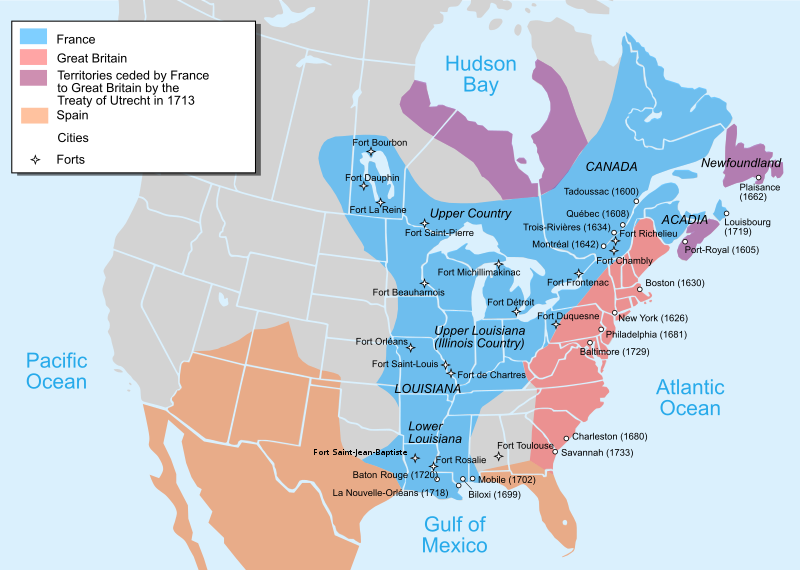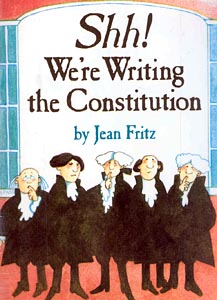I realize that this week's opportunity is a difficult question. There are two reasons why it's difficult for you. First of all, you need to lift your eyes from looking just at this chapter and remember all that we have read and discussed so far in this class pertaining to the differences between the northern and southern colonies, now states.
This needs to be a constant exercise - the going over of all that you have read and learned to see how things are related. It is also a good idea to look forward as far as you can to what you know what is coming and ask how does what's happening right now in my reading cause, effect, or influence that? What's coming is the Civil War and even before these states are 'United' the issues that are at the root of that war are already in place. The differences and tensions between northern and southern states were born back in their infancy as colonies. Do not fall into a habit of focusing only on the portion of the chapter we are currently reading!
The second reason this question is difficult for you is that I don't believe Bennett gives you all the information clearly. I'm going to attempt to fill in the missing holes for you in this post. Even though this is a difficult question, it is a very important one.
It was because of the controversy over this treaty that many southern states held out for so long against signing the Constitution! They were skeptical of a union that they felt favored the interests of one group of states over another. This controversy of John Jay's treaty was in large part the foundation for those feelings.
Before I give you the background on John Jay and Gardoqui I wanted to give you a few references to review for the differences between the northern and southern colonies/states. Specifically you want to examine and think about the differences in the economies of northern states and southern states. The northern conlonies/states based their economies on trade - remember the settlement patterns - they were crowded along the coast of New England with many, many harbors. Shipping was their lifeline. The fishing industry was also a large part of their economy. If you remember our economy lessons they had more capital (harbors and ships) to take their resources to places where they could be sold or traded. Their harbors were also a point of entry for goods from Europe that got distributed throughout the other colonies/states.
The southern states economies were based on agriculture. Their main resource was land, they had a shortage of capital and they depended upon a large force of slave labor in order to make their economy work. Their need for land meant that their colonies/states were more sparsely settled - that they were spread out and they did not have easy access to harbors to get their crops to markets. These agriculturists also saw their future in western lands - remember that idea of Manifest Destiny - the right to all the land all the way to the sea. (A good example of this feeling of going west is Pa in the Little House series.)
Remember these class conversations? Can you visualize or picture how different the interests of the northerners and the southerners were? Now let's take a look at the controversy over the Mississippi River. I'm going to begin by laying out the setting filling in some information that Bennett does not tell you:
#1 The Revolution had ended - the colonies had won their independence from Brittain and they considered themselves states.
#2 Neither Brittain nor the states were honoring the Treaty of Paris drawn up and signed in 1783. It was ratified by the Continental Congress in 1784. The problem was that each state saw itself as a separate entity - they did not all think that a treaty passed by the Confederation should have more authority than laws passed by their own governing bodies. There were two main areas in which the states were disregarding the treaty - the first was in paying back their debts. Each state was supposed to pay back it's own debt to their British creditor, but not all were doing so. Some thought these debts should be renounced. Under the Treaty of Paris states also were supposed to make restitution for property and land confiscated from British loyalists during the war and they were supposed to prevent any future prosecution or harrasment of British loyalists. This was also not happening in many states. The Articles of Confederation had no authority to force states to abide by the treaty. As a result Brittain had not yet pulled its forces out of the Northwest territory. This was threatening to the infant states.
#3 In addition to occupying it's forts in the Northwest Brittain kept her Royal Navy in American waters as a constant threat. (The fighting had stopped, the peace treaties were signed, but the hostilities were not ended!)
#4 There was more than one treaty negotiated to end the American Revolution. Our treaty with Brittain was called the Treaty of Paris. Brittain negotiated other treaties as well with Spain, France and the Netherlands resolving their involvement in the war. One part of the treaty with Spain gave back to Spain the territory of Louisiana and extended the panhandle of Florida west to meet the territory of Louisiana. If you look at a map you will see that this cut off all access to any ports along the southern borders of southern states. It essentially landlocked them and they lost access to the important port at New Orleans. (It was not until later that France gained control of this territory and not until the Jefferson presidency that we purchased it from Napoleon!)
#5 There were many Americans who were moving west to settle. There were two tensions on this front. The first was that there were suspicions that both the British and the Spanish were agitating the western indians agains these western settlers. The other tension with this westward movement had to do with territories gaining the right to statehood (the Northwest Ordinance p 110). This ordinance said that the way expansion would be handled was by creating new states and not making existing states larger. It also said that slavery was banned from these Northwest territories (it was in this territory that Brittain still held occupying forces). There was the question of slavery to be answered in all new territories and as the western population grew this question became more crucial. This also held the possiblity of upsetting the tenuos balance of slave and non slave states in the Confederation. Slave states did not want more free states and free states did not want more slave states.
#6 The government of the Confederation wanted to negotiate a treaty with Spain over the southern border, but had very little power. (The army had been disbanded and there were only about 100 soldiers at this time). To give you more background - in the midst of the Revolution John Jay was sent to Spain to gain their help in the effort for independence. He failed, but Spain did agree to give the Americans secret loans so they could purchase armaments. So the young confederate states were in debt to Spain, too! After the war was over Spain revoked the states rights to navigate the Mississippi River and closed the port of New Orleans to them.
#7 After the war there was an economic depression - especially in the northern states. They depended on shipping. The British were not trading with them, they British occupied American waters, and they were doing everything they could to strangle their trade. They were becoming desperate.
Now enters Don Diego de Gardoqui! He is acting on behalf of the king of Spain and Spanish interests and has been granted the power to negotiate with the states. In addition to trying to turn heads and win favors with Jay and other political leaders through bribes and favors he wants to protect the rights of Spain and Spanish power in the Americas and this means New Orleans and Florida. Spain does not recognize the right of American states to use the Mississippi or the port of New Orleans.
The Confederate Congress votes to give Jay the power to negotiate a treaty with Gardoqui (Spain) and his instructions cover two points - southern boundries and free navigation of the Mississippi with access to New Orleans. They gave him the power to negotiate a treaty only if it had those two elements in it. Gardoqui works to entice Jay to forfeit navigation rights on the Mississippi or any access to the port of New Orleans in exchange for favored trading privelages with Spain. Jay to his credit is probably less enticed by Gardoqui than he is pressured by the powerful northern states and their merchant interests. They clamor for an opportunity to get their economy moving again. The Mississippi really means nothing to them.
No treaty was negotiated and Jay goes back to congress and there is a second vote to give him the power to negotiate a treaty that does not include navigation rights. The issue the southern states had with this treaty was that the first instructions to Jay passed with a 2/3 majority vote (9 in favor) but the second set of instructions only passed with a 7 to 5 vote with southern states voting against giving Jay the power to negotiate such a treaty. They did not accept that second vote as valid.
Nevertheless, Jay does negotiate a treaty, and in it he forfeits America's use of their navigation rights of the Mississippi and access to the port of New Orleans (of interest mainly to southern states and settlers in western territories) for a period of 25 years. Jay's argument is that if Spain signs a treaty that says that America forfeits use of their rights for 25 years they are really recognizing that at least they do have such a right which can be used in later negotiations. Southerners accuse Jay of trying to split the confederation and it is such a contentious point that it keeps states from signing the Constitution after it is written.
This is not fully resolved until 1795 when Thomas Pinckney negotiates a treaty with Spain called the Treaty of Madrid!







